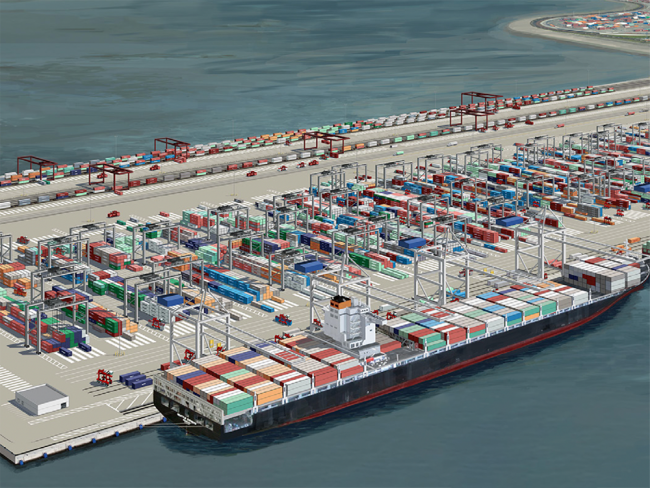Articles Menu

Jul 19, 2023
Striking Vancouver port workers have rejected a proposed settlement, resuming a strike that has snarled supply chains across the country.
“They have voted down the mediators’ recommendations because we didn’t feel it protected our workers’ jobs,” ILWU Canada president Rob Ashton said.
The union’s announcement has ben criticized by business groups, who say the strike will be disastrous for the economy.
O’Regan said Tuesday night he was “looking at all the options.”
“We have been patient. We have respected the collective bargaining process. But we need our ports open,” O’Regan said in a joint statement with federal Transport Minister Omar Alghabra.
The ILWU went on strike on July 1 seeking wage increases and protections for workers worried about automation and outsourcing of jobs like maintenance in B.C.’s ports.
The federal government stepped in after the union failed to make headway with the BC Maritime Employers Association, which represents 49 private companies who employ the affected ILWU members.
O’Regan appointed a federal mediator to propose an agreement to the two parties last week and gave them 24 hours to accept.
The employers and union agreed to the interim agreement on Thursday and picket lines came down.
But on Monday, the ILWU’s contract caucus — a group made up of more than 100 elected delegates from five member locals in B.C. — voted narrowly to reject the federal mediator’s deal, according to two sources familiar with the matter who spoke to The Tyee under condition of anonymity. One source said the difference was only a few votes. Ashton declined to confirm the exact count of the vote.
That result means the ILWU’s members will not vote directly on the agreement.
Sources said delegates were concerned the proposed agreement did not have strong enough provisions to prevent outsourcing of jobs in areas like maintenance. The ILWU has also been vocal about its concerns about rising levels of automation at B.C. ports, including in the draft plans for the newly-approved Roberts Bank Terminal 2 Project.
Caucus members were also frustrated with the four-year term of the contract, sources said. The ILWU had originally sought a two-year contract, which Ashton said would have given workers more leverage to negotiate better salaries in turbulent financial markets.
In his statement, O’Regan said the ILWU had originally said they would recommend the deal to members. He said the union had rejected a “fair and balanced deal.”
Ashton blamed employers for the frustrating negotiations, arguing shipping companies profited massively during the COVID-19 pandemic and were refusing to share that wealth with workers.
“This is the stand we have to make not only on behalf of our union, but to show workers they can stand up to employers who want to hoard their money,” Ashton said.
The employers, in a public statement, said the union rejected a “fair and comprehensive” package that included “considerable hikes in wages and benefits” and protections against contracting out work.
The Globe and Mail reported that the terms of the agreement included a 19.2-per-cent wage increase over the term of the four-year contract, plus a signing bonus.
BC Chamber of Commerce president Fiona Famulak said Tuesday that she wants O’Regan to force the ILWU’s members back to the job via legislation.
Famulak said disruptions at the port had become “untenable” and that businesses from retailers to manufacturers risked losing contracts and business because of the uncertainty created by the strike.
Famulak said she had hoped the two parties could find an agreement together but now believes the federal government “should use every tool at its disposal” including legislation.
“If that’s what’s needed, that’s what’s needed,” Famulak said.
Ashton said O’Regan should not take such a step. He argued the union should be allowed to find a deal at the bargaining table.
“I hope the federal government understand the workers in this country need the ability to freely negotiate with their employers,” Ashton said.
Zak Vescera is The Tyee’s labour reporter. This reporting beat is made possible by the Local Journalism Initiative.
[Top photo: The proposed Roberts Bank port expansion would dramatically increase container capacity. Illustration via the Port of Vancouver.]